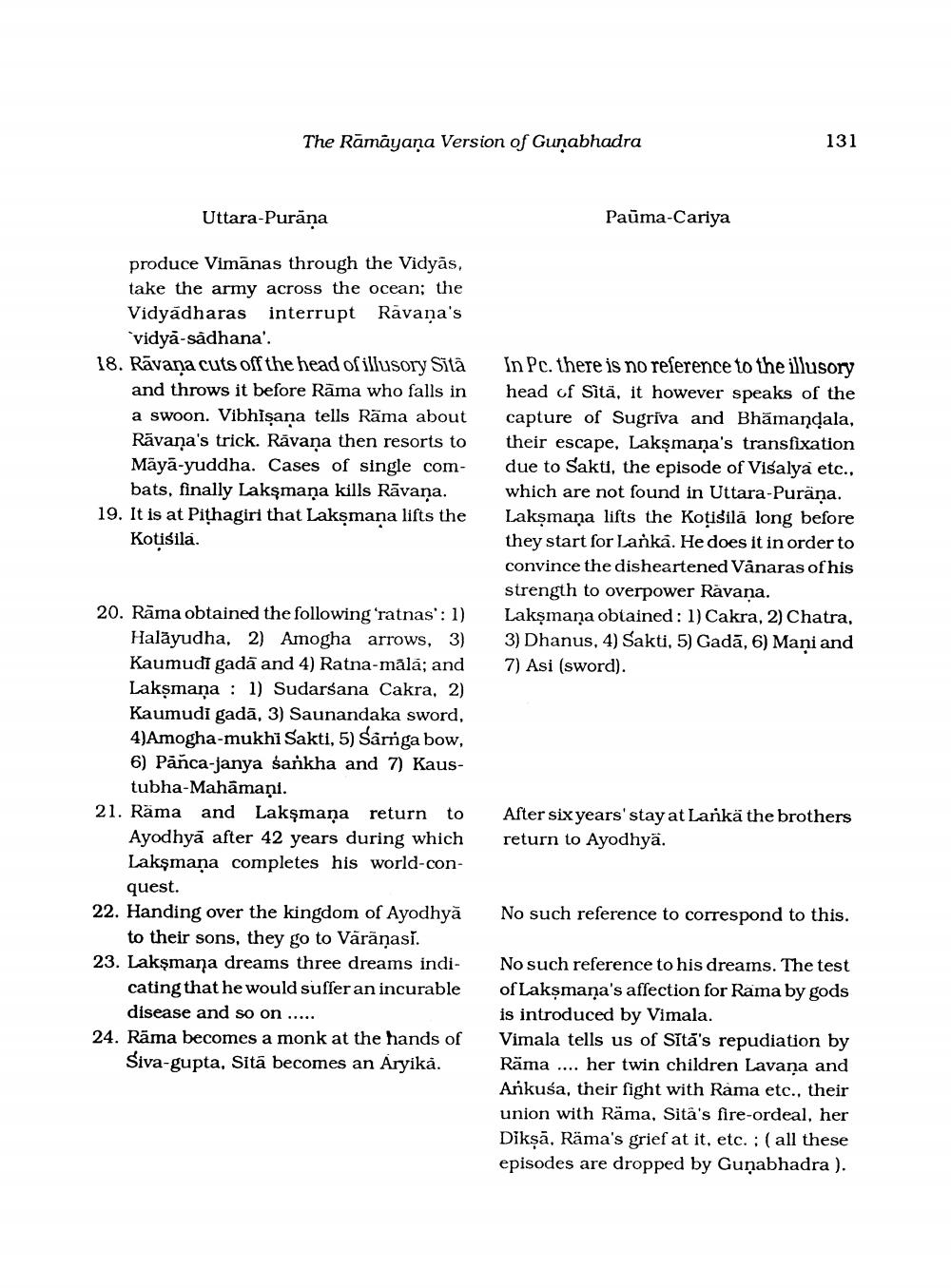________________
The Rāmāyaṇa Version of Gunabhadra
Uttara-Purana
produce Vimānas through the Vidyas, take the army across the ocean; the Vidyadharas interrupt Ravana's vidya-sadhana'.
18. Ravana cuts off the head of illusory Sitä and throws it before Rama who falls in a swoon. Vibhiṣaṇa tells Rama about Rāvana's trick. Ravana then resorts to Māyā-yuddha. Cases of single combats, finally Lakṣmaṇa kills Rāvana. 19. It is at Pithagiri that Laksmana lifts the Kotisila.
20. Rama obtained the following 'ratnas": 1) Halayudha, 2) Amogha arrows, 3) Kaumudi gada and 4) Ratna-mala; and Lakṣmaṇa 1) Sudarsana Cakra, 2) Kaumudi gadā, 3) Saunandaka sword, 4)Amogha-mukhi Sakti, 5) Sarriga bow, 6) Panca-janya sankha and 7) Kaustubha-Mahamaņi.
21. Rama and Lakṣmaṇa return to Ayodhya after 42 years during which Laksmana completes his world-conquest.
22. Handing over the kingdom of Ayodhya to their sons, they go to Varanasi. 23. Laksmana dreams three dreams indicating that he would suffer an incurable disease and so on......
24. Rāma becomes a monk at the hands of Siva-gupta, Sitá becomes an Aryika.
Pauma-Cariya
131
In Pc. there is no reference to the illusory head of Sita, it however speaks of the capture of Sugriva and Bhamandala, their escape, Lakṣmaṇa's transfixation due to Sakti, the episode of Visalya etc.. which are not found in Uttara-Purana. Lakṣmaṇa lifts the Kotisilă long before they start for Lanka. He does it in order to convince the disheartened Vânaras of his strength to overpower Ravana. Laksmana obtained: 1) Cakra, 2) Chatra, 3) Dhanus, 4) Sakti, 5) Gadā, 6) Mani and 7) Asi (sword).
After six years' stay at Lanka the brothers return to Ayodhyä.
No such reference to correspond to this.
No such reference to his dreams. The test of Lakṣmaṇa's affection for Rama by gods is introduced by Vimala.
Vimala tells us of Sita's repudiation by Räma.... her twin children Lavana and Ankusa, their fight with Rama etc., their union with Räma, Sita's fire-ordeal, her Dikṣā, Räma's grief at it, etc.; (all these episodes are dropped by Gunabhadra).




